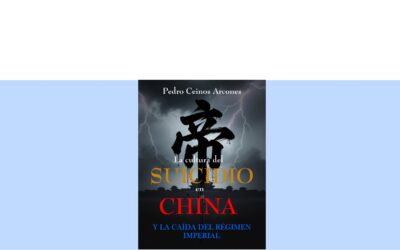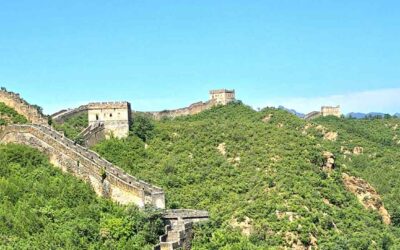Zhuang phallic ritual
Zhuang minority has an interesting phallic ceremony. According to their legends, in antique times there was no communication between the two banks of the Hongshui River, women living on one bank of the river and men on the other. The god Buluotou stretched out his big and long sex over the river, making a celestial bridge. Thanks to this bridge the people crossed the river, and they mated making the first families, and humanity propagated.
When the god become old and the bridge turned soft, he removed the bridge leaving two pubic hairs that turned in two ways, masculine and feminine, making a bridge of men and women, where the people met in joy.
Every year, in the days following the New Year Festival, local people gather in the two banks of Hongshui River to celebrate a festival honoring Buluotou’s sex. They sacrifice an ox and a cow to Buluotou, provided by the people living on the two banks of the river. Images of the sex of the god are hung everywhere, usually as a paper sail, that the wind can blow as in the penis of the god have an erection.
Zhuang people eat and drink, the young people sing love songs. During the festival, they honor also their goddess Miliujia, as they consider that both she and Buluotou together created human beings. In the last 30 years, the sacrifice of the ox and cow were stopped, but not the festival atmosphere and the singing gathering.
Last posts
Why It Is Necessary to Study Suicide in Chinese Culture
Why It Is Necessary to Study Suicide in Chinese Culture While drafting new chapters for my Brief History of China, cases of suicide kept appearing in the most diverse circumstances. Ministers and wives who allowed themselves to be buried alive to accompany kings to...
The true origin of the Great Wall
The true origin of the Great wall, as seen in Nicola Di Cosmo (The Origins of the Great Wall. Silk Road Journal. 1993). Generally speaking, the political discourse about foreigners in pre-imperial China tends to justify expansion and conquest, which is exactly what...
Tiger Leaping Gorge: a 3,000-meter drop into the Yangtze River
Tiger Leaping Gorge: a 3,000-meter drop into the Yangtze River The Yangtze River is the longest river in China and, at 6,300 km, the third longest in the world. It is China’s vital artery, flowing from its source on the Tibetan Plateau across the country’s central...







